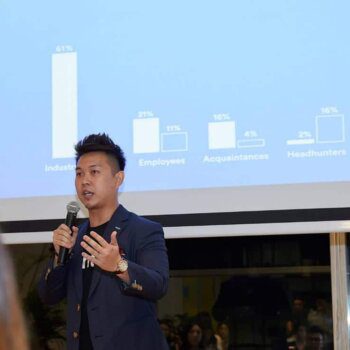(Women on Top in Tech is a series about Women Founders, CEOs, and Leaders in technology. It aims to amplify and bring to the fore diversity in leadership in technology.)
Here is my interview with Sue McLean, Of Counsel of Morrison & Foerster. Sue McLean is an Of Counsel lawyer in the London office of international law firm Morrison and Foerster. Sue is a member of the firm’s Technology Transactions Group and Global Sourcing Group and leads the firm’s FinTech practice in London. Sue has over 16 years of experience advising clients on their strategic technology deals and business models, including outsourcing, technology infrastructure and digital transformation projects, cloud computing, e-/m-commerce, and social media. Sue’s clients range from emerging companies to large multi-nationals and she advises across many business sectors, but with particular experience in financial services.
What makes you do what you do?
I’m fascinated by new technology and love the fact that the law is always playing catch-up. It means that I’m always learning. If I think back 10 years ago, we were dealing with the emergence of cloud and social media. Five years ago – the internet of things, robotics. Today its blockchain, VR/AR, AI. There’s also a huge variety in my work. In the same week, I can be working on a multi-million pound deal for a bank that is outsourcing its IT and network infrastructure, advising a FinTech on the terms of use and privacy policy for its new app, and advising a technology company on the legal implications of rolling out its new business model across Europe.
How did you rise in the industry you are in?
I worked very hard to provide a great service to my colleagues and clients so that I became a go-to person for the most challenging and complex technology projects. As a tech lawyer, clients want a deal-maker, someone who understands their commercial drivers and works well with the business. So building good relationships with the technical and business teams, as well as the in-house legal team is vital. Remaining curious and keeping up-to-date with new technology is also essential so that you can advise clients of the legal implications of their new tech projects and business offerings. As with any sector, you also need to build your network, both internal networks and external networks so that you build your reputation as a trusted advisor.
Why did you take on this role/start this startup especially since this is perhaps a stretch or challenge for you (or viewed as one since you are not the usual leadership demographics)?
At university or law school I certainly didn’t expect to become a lawyer specializing in technology projects. After all, STEM subjects were not my favorite subjects at school and my experience with technology was purely as a consumer, which was pretty limited. Those were the days before the Internet and smartphones. After spending time with a commercial law firm during university I knew that I wanted to work in business law, but I still wasn’t exactly sure what type of law I would end up specializing in. However, during my two-year training contract, I spent time working on a major IT outsourcing project plus various e-commerce projects and I found the sector and the work really exciting. That was the late ‘90s and the pace of technology change was huge.
Do you have a mentor that you look up to in your industries or did you look for one or how did that work?
I have had various mentors over the years. Technology law is still pretty male dominated at the senior levels, so most of my mentors have been men. In terms of finding them it was organic – they tended to be colleagues or ex-colleagues. My female mentors have tended to be women outside of technology law and again it’s been more organic, than deliberate. However, there are many women in technology that I consider role models. Women who really led the way like Stephanie Shirley – just an incredible woman in terms of the scale of what she achieved in business, the adversity she has dealt with during her life and her generosity and humility. But also lots of other women in tech that are less well known – women creating and leading tech businesses, helping drive diversity in their organizations, giving back.
Now as a leader how do you spot, develop, keep, grow and support your talent?
We have a very talented group of junior lawyers here at MoFo. I feel very strongly that to keep talented people motivated, you need to give them responsibility early on and harness their natural enthusiasm – get them involved in business development, invite their views, encourage them to take initiative and make them feel invested in the business. We greatly benefit from their energy and their new ideas. I also encourage my junior colleagues to take charge of their careers right from the beginning, focus on what they want to achieve, highlight their successes, and look for mentors and sponsors. It’s also important to create open communication – provide them with regular constructive feedback (and seek feedback from them).
Do you consciously or unconsciously support diversity and why?
I am a passionate champion and advocate for women in law and in technology. Women make up more than half of lawyers entering the profession, but we are still seeing very small percentages at the most senior levels. In technology, the challenge is even greater. Not enough women are entering the sector, but there are also challenges in retaining women in the sector and progressing women to management positions. It’s absolutely clear that we need to get more girls and young women studying STEM subjects and considering technology as a career. That means starting early with school age children (and, importantly, their parents and teachers); breaking down stereotypes, highlighting role models and raising awareness of the diversity of roles available in the sector. I’m very pleased to support organizations like the Stemettes who are doing a terrific job encouraging girls and young women to get involved with technology.
What is your take on what it takes to be a great leader in your industry and as a general rule of thumb?
For me, a great leader is someone that loves what they do and instills confidence, inspires and brings the best out in their team. Someone that has high ‘emotional intelligence’, is open-minded and invites the views of others while being able to be decisive and make difficult decisions. Given the fact that technology is continuously evolving, you also need to be love learning and be adaptable to change.
Advice for others?
I’m a big fan of Facebook’s mantra “What would you do if you weren’t afraid?” It may be a stereotype, but I think women can have a tendency to over-think things and avoid taking risks, which can hold us back. Sometimes we need to push ourselves outside our natural comfort zone. Take that stretch assignment, apply for that job, agree to speak at that event. That’s why I loved this year’s International Women’s Day theme; “Be Bold for Change”.
To learn more about Morrison & Foerster, please see https://www.mofo.com.
I am a huge fan and cheerleader of Women Leaders — If you know of an AMAZING Woman Founder, CEO, Leader in Tech or you are one yourself — Write me here.
AMPLIFY Conscious Business Leadership with me.






























